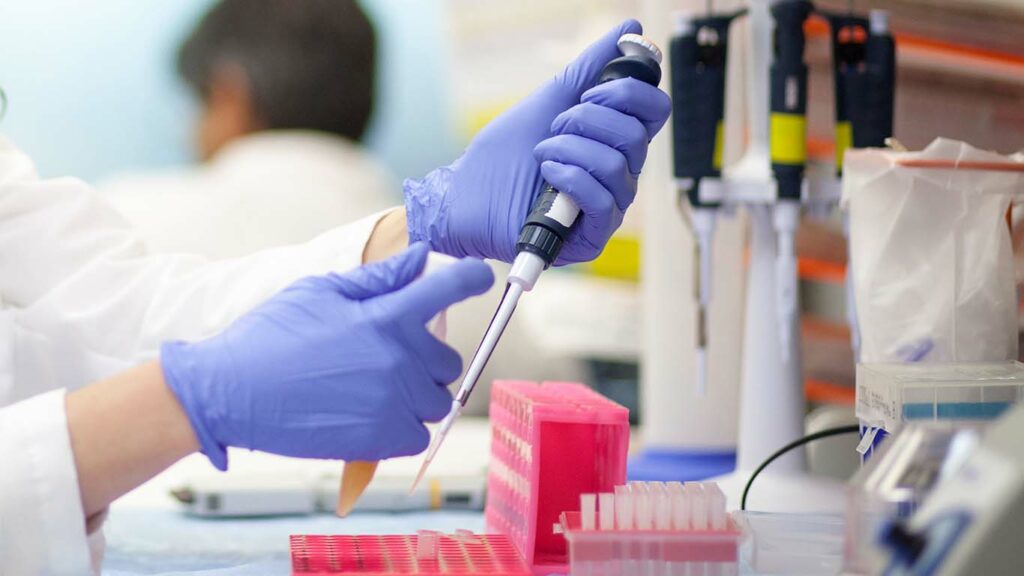A study describes a new way to generate insulin-producing cells
June 22, 2022
- Researchers from the Karolinska Institute in Sweden, in collaboration with Meritxell Rovira from IDIBELL, the P-CMRC, and the UB show that a recently identified molecule stimulates the formation of new insulin-producing cells in zebrafish and in mammalian tissues.
- The study was published in Nature Chemical Biology.

The results of the study led by Dr. lov Andersson, a senior researcher at the Department of Cellular and Molecular Biology at the Karolinska Institute, have identified a new molecule and deciphered its mechanism of action that makes it capable of stimulating the formation of new insulin-producing cells as a potential treatment for diabetes.
Type 1 and type 2 diabetes are characterized by high blood sugar levels. This may be due to low levels of endogenous insulin, the hormone required for glucose uptake from the blood or, a physiological inability to use secreted insulin, or both. Insulin injections and glucose-lowering drugs can control the disease but not cure it
An alternative to these drugs could be a treatment that regulates blood glucose by increasing the number of insulin-producing pancreatic β cells, but for this, it is necessary to control the regeneration of these cells.
In previous studies, the Karolinska team had described a small molecule capable of stimulating the regeneration of insulin-producing cells. They achieved this by analyzing a wide range of molecules in the zebrafish model. In the present study, they examine the molecular mechanism of this stimulation.
By analyzing a large number of molecular interactions in yeast cells, the researchers show that their molecule binds to a protein called MNK2. Subsequent studies of zebrafish and cell cultures indicate that the molecule operates by regulating the translation of mRNA and boosting the synthesis of proteins, without which the formation of new β cells cannot be increased.
The study also shows that the molecule can induce the formation of new pancreatic β cells from pigs and stimulate the expression of insulin in human organoids (organ-like cell formations).

